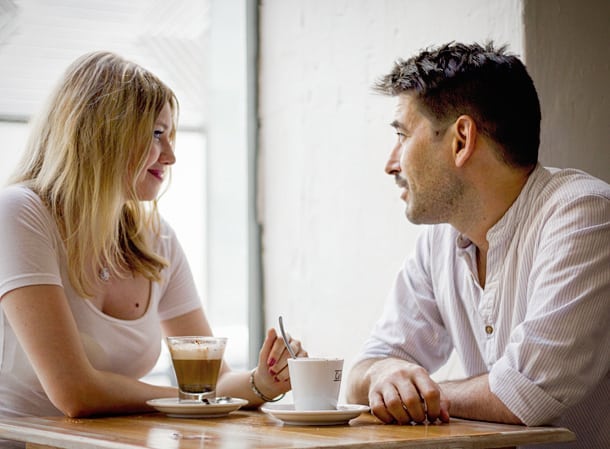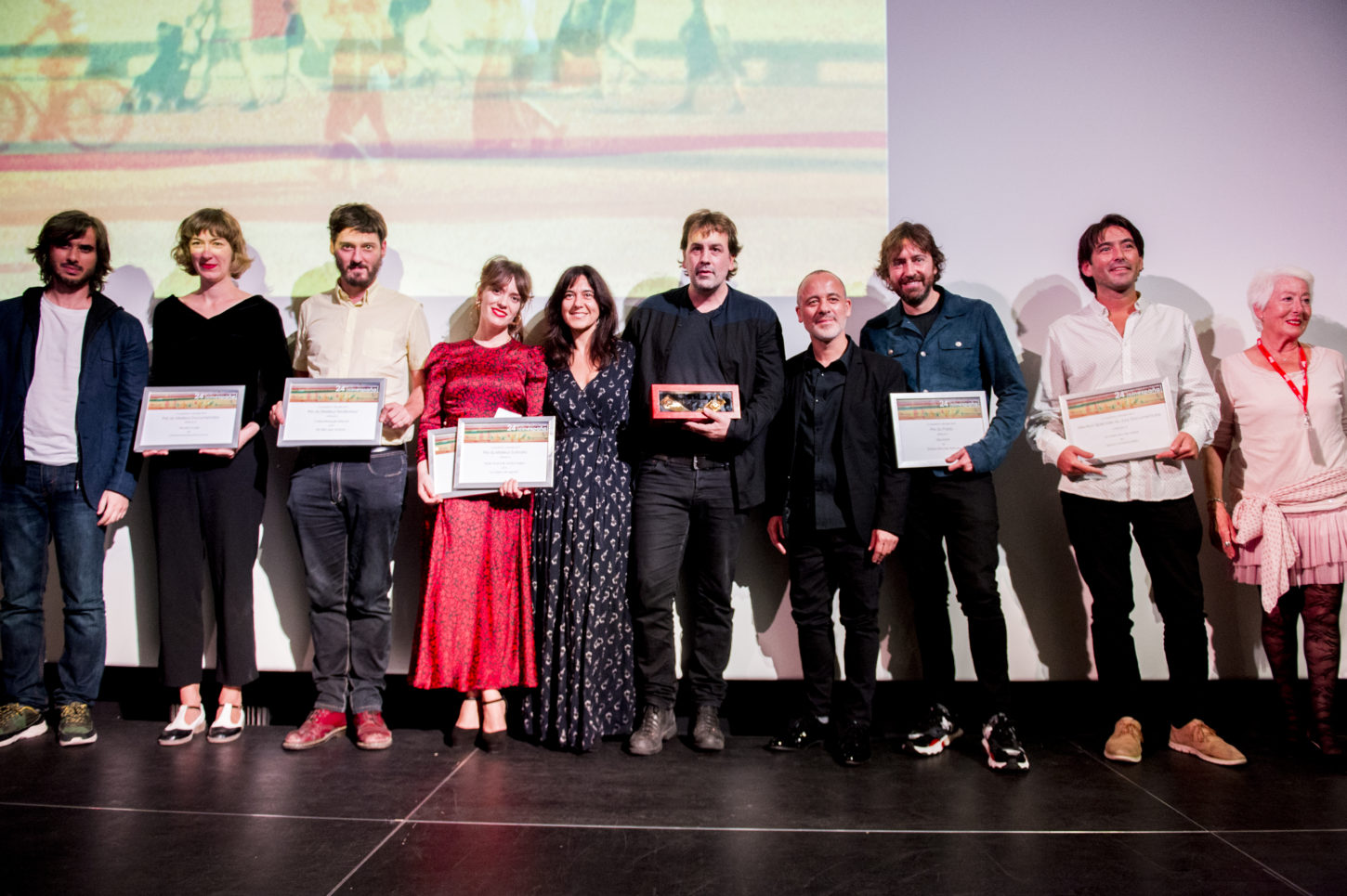Spanish Self-producted Yonqui-Punk Cinema

Ignacio Guarderas was born in Malaga but all his youth he lived in Granada. This Andalusian city formed him and here he got his theatre education. After his graduation, he moved to Madrid to learn more about cinema, and in the capital of Spain, he started his first experiences as director. His inspiration has always been European cinema but it was an Iranian movie, “And Life Continues” by Abbas Kiarostami, that convinced him be involved with cinema seriously. Presently, he lives between Granada and Madrid.
Although he has taken courses in different film schools, such as Séptima Ars (Madrid), La Escuela Internacional de Cine y Televisión de San Antonio de los Baños (Cuba), basically his training as a cabin operator was done in cinemas of Madrid: Cines Ideal, Cines Verdi, Pequeño Cine Estudio. Ignacio was about to start a doctorate at the Universidad de Granada de Antropología Audiovisual in research “Observatory of Cultural Prospect Hum-584″ group. “I would like to explore anthropology not as a study of the other, but as a meeting of looks, a dialogue between cultures, between cinematographies”, he said to JL Interviews in a coffee bar in Lavapies, the famous district of Madrid.
He has made several short films (“Moreria 17”), documentaries and documentary-based feature film (in which there is no previous script and the actors interpret themselves). Currently, he is promoting a fiction feature film entitled “The Crystal Mask”. The movie received “Special Mention” for The Best Documentary at 24th Festival Cinespana in Toulouse. Next self-production? “I with my film friends, we are finishing another feature of Fiction that we hope to conclude by the end of the year or the beginning of the next”.
The famous Andalusian cinema name is Antonio Banderas born in your native city Malaga. Have you known him in person?
No, I only know him as an artist. What can I say about him? I can’t say more than what any other movie viewer can say. He has acted in films that I like, those of Almodóvar or Bajada al Moro by Fernando Colomo. I have followed his career in the United States more tangentially.
Can we speak in Spain about “Andalusian cinematography”?
I think not, unfortunately. There are films made in Andalusia and / or made by Andalusians, but that of an Andalusian cinematography, no.
How can you call your film art?
Once I heard Joe Strummer, the singer of The Clash, saying that Punk was about doing it all with friends. I liked that and I like to see the cinema that I do as a kind of artisan cinema. Punk cinema that has nothing to do with aesthetics but with the means of production.
What roles have the towns Malaga (where you were born) and Granada (where you grew up) played in your professional life?
From Andalusia I went out to do Cinema. Some movies are more or less linked to my land. Now I’m back to try to make movies around here. Who knows?
When and in what circumstances did your adventure with cinema begin?
I studied Physics in Granada although I did not take it very seriously. I wandered back and forth from bar to bar without knowing what to do with my life. A friend invited me to do an “university theatre”. That fact motivated me to act for fun. I wrote a small piece. Finally something gave me a purpose, I had fun and thought I was good. I thought I didn’t like Cinema. I did not watch Cinema, I was bored by the films they put on the billboard. I just liked movies by the Marxist Brothers, Charles Chaplin, Buster Keaton and Woody Allen and some films I watched on TV that never came to know who they were. I had not seen much Cinema and especially did not have a so called “cinephile culture”. I thought I could try to be a screenwriter and I left Granada. First, I arrived in Edinburgh. I imposed a discipline of watching Cinema on myself. As I feel very bad about English, I thought that it was best to watch non-English-speaking movies so that, at least, I could read the subtitles. I remember that there was an Iranian movie on the billboard. I had seen some Iranian movies in Granada and I liked them, They seemed different. However, I confess that I was too lazy to go to see an “Iranian” movie. “Slow” movies, without music, starring children in their wandering in search of something, etc. I hesitated a lot, but I finally went in. I loved the movie, it captivated me, it was an epiphany for me to such an extent that I told myself that I wanted to make films like that. The movie was called “And Life Continues” by Abbas Kiarostami.
One of your last operas, entitled “The Crystal Mask”, was presented this October in Cinespaña Toulouse. What is this film about?
It is a documentary feature film that deals with lies or rather it is a game in which a format, such as documentary tells a truth, speaks of how a lie (like fiction) can also tell the truth. A little messy, right? Yes, that goes too.
When we can see your next film? Do you also work on feature films?
We are finishing another feature of Fiction that we hope to conclude by the end of the year or the beginning of the next.
What is the direction that your cinema art takes? What would you like to experiment?
I do not know. Now I am going to start a doctorate at the University of Granada of Audiovisual Anthropology in which I would like to explore anthropology not as a study of the other, but as a meeting of looks, a dialogue between cultures, between cinematographies or, if not so ambitious, between private film makers.
Presently you are based in Madrid. How do you live the cultural life of this big city. How has your life changed since you moved here?
Now I am back in Granada, but I won’t leave Madrid at all.
How about your new movie? How much time did it take to finish?
The new movie is the result of the previous one. When “The Crystal Mask” ended there was a huge vacuum. I am aware that my cinema travels little, that self-produced cinema is foremost precarious. While you are immersed in the production one lives as on a roller coaster, the goal is to conclude it, take it to its end. But when you see that it ends and that very likely that no one will see it, not even those who selflessly helped you … Then it gives you a downturn very similar to that of the drug addict who feels the effect of finishing the substance. So, there is nothing left but to take another dose: no matter the quality or cost, it is necessary. This is why I started, together with friends (where possible), to make another movie. The previous one took me five years and with this I couldn’t wait that long. This would be a fiction, where you can control the script more and consequently the time. The idea is to see what is available (borrowed money, material and help from friends) and consequently what history can be told using the means you have. And so it was made, crazy: Yonqui cinema! I apologize to those who feel upset about this.
In which Festivals will you take part?
Festivals are something that cannot be foreseen. It is a lottery. Many factors intervene for a movie to be selected. There are many movies, very good ones, with great billing, so being selected in one is already a prize. You have to have your feet on the ground to think that when you send the film to 50 festivals and they don’t ever select it, it doesn’t mean that the work is bad, just as when they select it, it’s not necessarily good. Recognition is important because it helps to continue, but Yonqui-Punk-Artisanal cinema has other needs and other accomplishments.
Writen by Joanna Longawa
Photo Gallery: Cover picture by Horacio Flores; Photos witht the Producer and actors by @FRANCKALIX








Leave a Reply